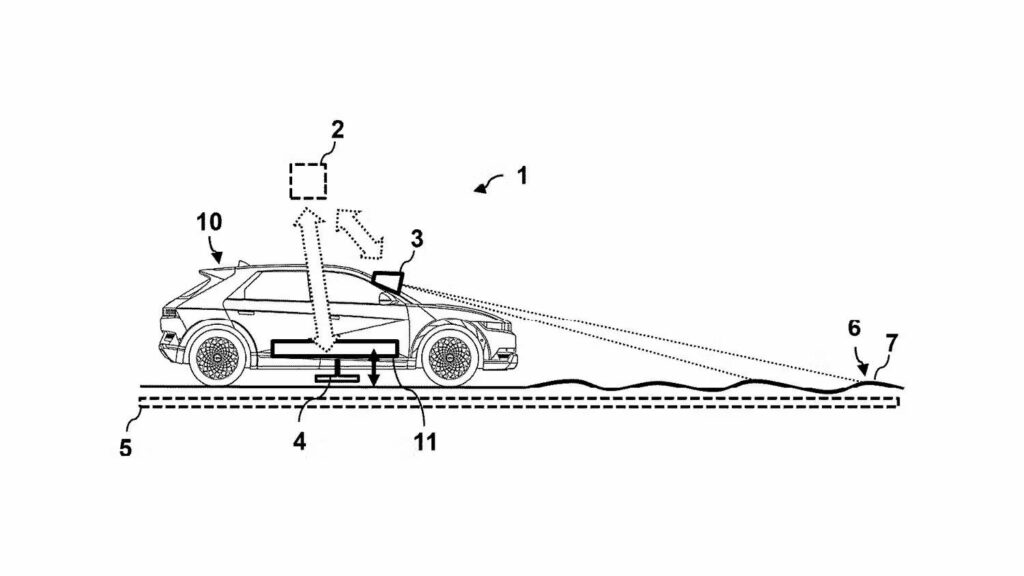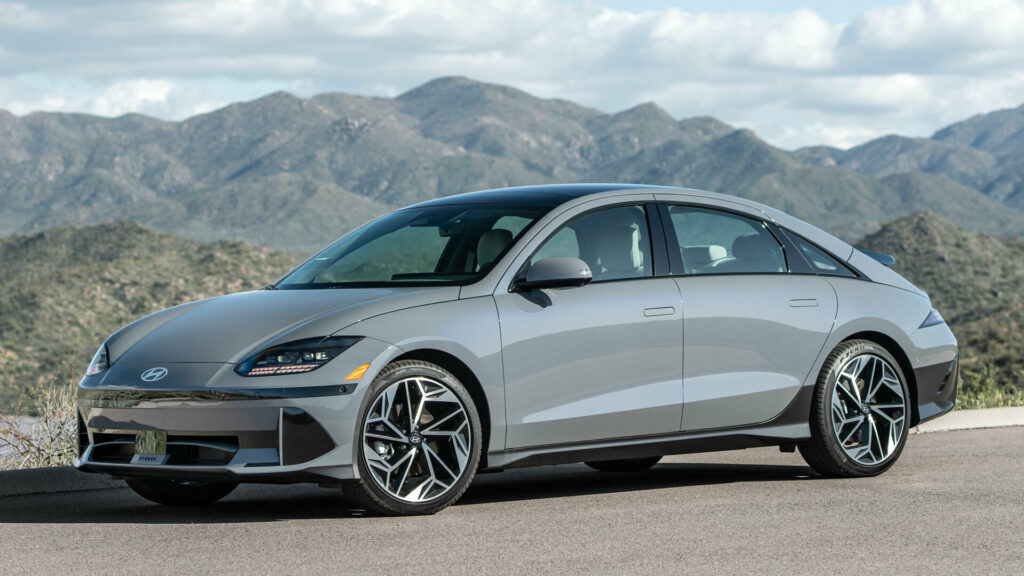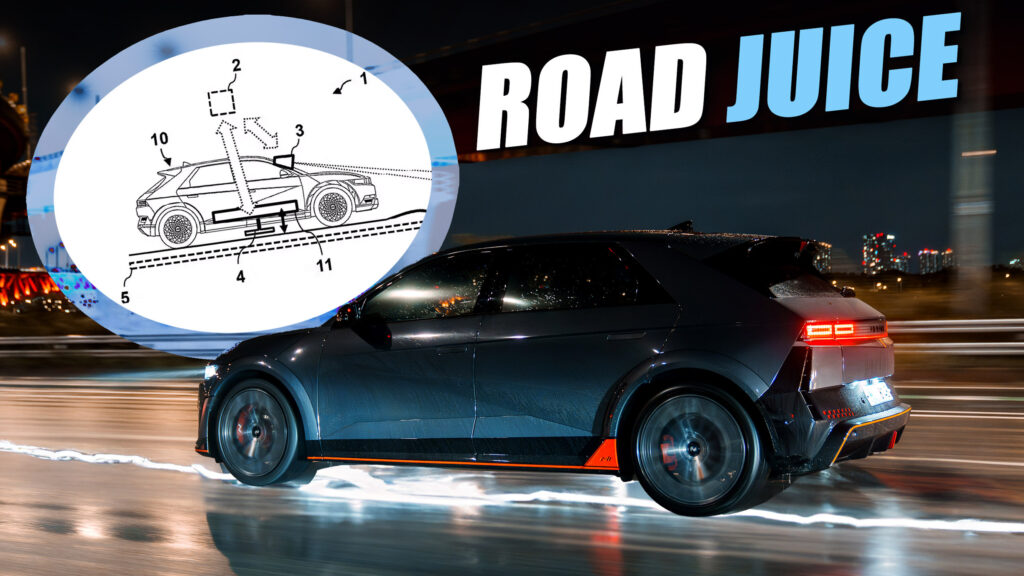- Hyundai’s new patent could let EVs wirelessly charge on the road, even on uneven surfaces.
- Vehicle-to-everything tech could allow the navigation system to suggest the optimal route.
- The high cost of wireless charging roads means widespread adoption is likely decades away.
Wireless charging has taken off in the world of consumer electronics, but it hasn’t yet gained widespread adoption in the electric vehicle sector. However, a new patent filing by Hyundai could change that and bring the concept of wireless charging roads closer to reality.
There are already a few small sections of road that incorporate wireless charging technology, but they are rare. For example, a section of 14th Street in Detroit is equipped with wireless charging, and similar trials are being conducted in various other countries including France, Norway and Sweden.
Read: Wireless EV Charging Is On Its Way, But It’s Moving At A Trickle
Hyundai’s recent patent, though, presents a more practical solution that could make wireless charging roads more viable by addressing the challenge of uneven surfaces, a common issue on many roads. Their approach could ensure that wireless charging systems work smoothly even when the road conditions aren’t perfect.
Roads take a battering and require constant upkeep to stay safe. Ensuring a road with charging tech is smooth is even more important, as any bumps or potholes could interrupt the flow of electricity from road to car.
A height-adjustable solution
Hyundai’s solution, as uncovered by CarBuzz in a US patent filing, is to use a charging receiver under a vehicle that sits on a height-adjustable inductive power transfer coupler that can automatically raise and lower itself to position it perfectly above the road surface, no matter the terrain.

That’s not all. Hyundai thinks it could then use a system similar to the Magic Body Control suspension pioneered by Mercedes-Benz, which uses forward-facing cameras to read the road surface and adjust a car’s suspension accordingly. This would be hugely beneficial for wireless charging as it would allow the the vehicle to detect any surface imperfections and adjust the charging receiver to maintain optimal positioning, even on rough or uneven roads.
More: New Florida Toll Road Will Charge EVs As They Drive
Hyundai’s design would rely on vehicle-to-everything (V2X) technology to collect real-time data, enabling the navigation system to recommend the smoothest and most efficient routes for wireless charging. Such an intelligent system would make driving more seamless and convenient for EV owners by ensuring consistent charging on the go.
Challenges of cost and infrastructure
Of course, Hyundai’s system doesn’t overcome one of the biggest obstacles that could prevent wireless charging roads from becoming commonplace: cost. Ripping up existing roadways, or even building new roads, with wireless charging coils would be insanely expensive and only make sense if the vast majority of cars on the roads were EVs. As such, we can’t imagine driving coast-to-coast in an EV, charging wirelessly, for many decades.




